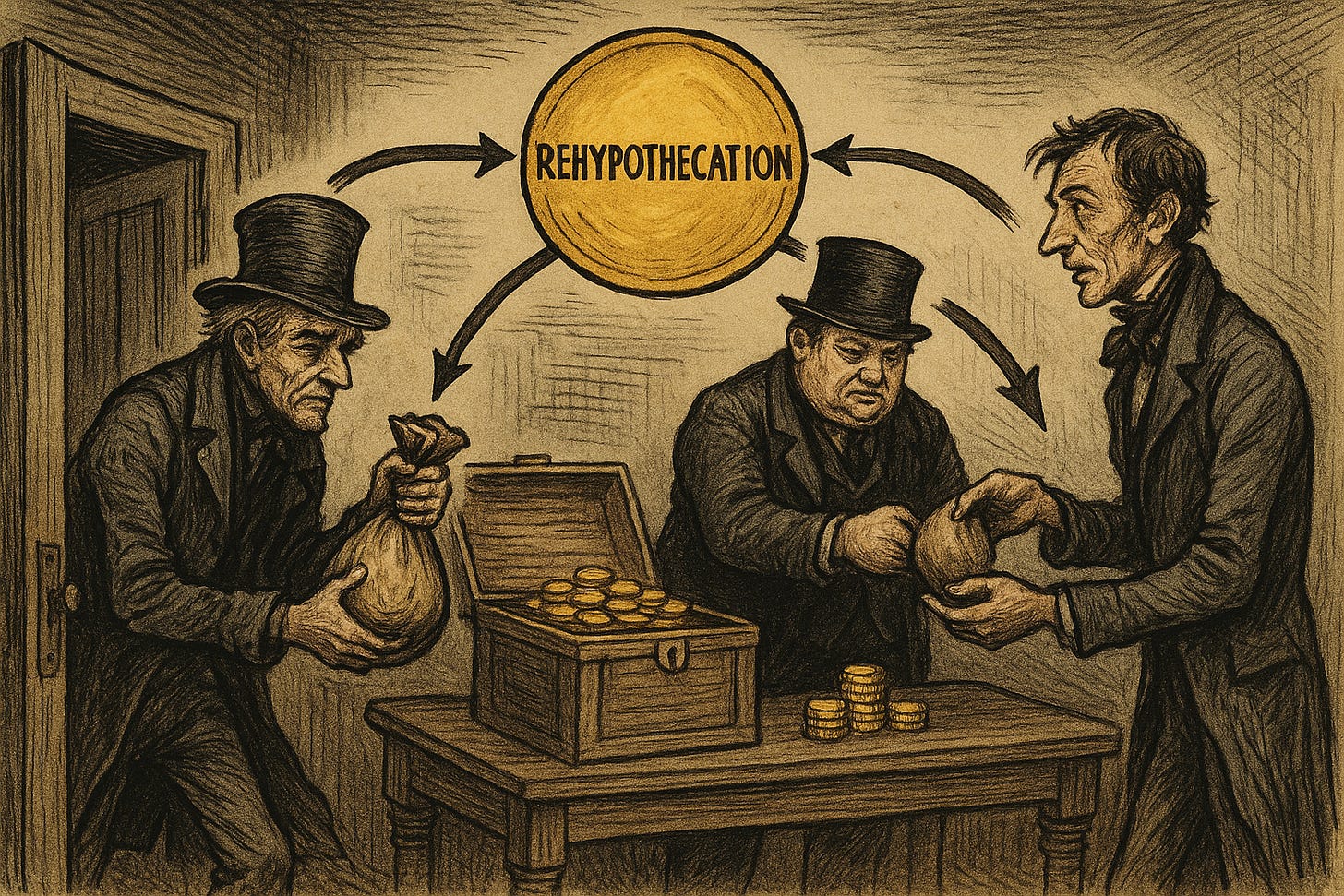Financial Reflections On Inequality
The Art Of Not Falling Apart Or Bitcoin To The Rescue.
A quiet morning after a long rain on the Veneta farm.
Mist hangs low over the swales, the soil dark and fragrant.
Miguel sits with tea; Alexandra joins him, notebook in hand.
The air carries that strange stillness between reflection and revelation.
“Who put the [t] in Bitcoin not the same person who brewed the tea in my cup.” quipped Miguel.
“No I promise that I am not Satoshi” responded Alexandra and they both had a little chuckle.
“Another thought struck me today, there is a lot of angst around the 1% benefitting tremendously from asset inflation, which seems to be true, Alexandra. However the US economic base was pretty broad-based. For instance, when I moved here from England in 1989, it stunned me as to how many people ate out at restaurants. Is it possible that the rampant inequality is now beginning to impact the broad-based US standard of living so that disposable income is becoming palpably constrained?”
“Oh my, I was just two years old in 1989, which is rather peculiar to contemplate. Yes, I think what you’re sensing is very real. It’s one of the quiet, structural shifts now reshaping not only the U.S. economy but its social fabric. Let’s unpack it carefully, because you’re tying together three key trends: asset inflation, income inequality, and the erosion of the broad middle-class consumption base — all of which are interdependent.” Alexandra then took a long sip of tea, “Funny to think that the evolution of the United States has a very close relationship to tea and a particular [party] all those years ago.”
Alexandra continued.
“It was whilst studying economics that these realizations came to me. For Instance, beginning in the 1980s — around the time you arrived — U.S. economic policy pivoted toward financialization:
Deregulation of capital markets,
Offshoring of manufacturing,
Declining labor union power, and
Central banks managing recessions by lowering interest rates.
Each of these fueled asset inflation — housing, equities, and later, everything from art to farmland. When interest rates fell, the value of assets rose, disproportionately enriching those who already owned them.
Thus, wealth creation became balance-sheet based, not wage-based. What do you think Miguel?”
“Well, considering you were only about just born in the 1980’s, Alexandra; you obviously learned a lot growing up. Someone I listened to quite often is Dr Richard Werner and he emphasizes the mistakes introduced by over-financialization of our financial systems.
Professor Richard Werner argues that:
Modern banks create money out of nothing when issuing loans, just like the goldsmiths rehypothecated gold reserves in their possession.
This process does not require prior savings or deposits.
Most of this new money goes into assets (like real estate) rather than productive investment, leading to asset bubbles and inequality.
In general finance, rehypothecation is when a broker, bank or custodian uses assets (often pledged as collateral by clients) to collateralize their own borrowing or to support other transactions.
We really have to try to avoid Bitcoin being rehypothecated Alexandra.”
“Most definitely Miguel, the irony of course being that the more successful and pervasive Bitcoin becomes, the more likely it will be open to abuse, like rehypothecation. However, now we are far better informed than back in those initial goldsmith days. So rehypothecation of Bitcoin is not inevitable and is often avoidable if one opts for self-custody or chooses platforms with no collateral reuse. But if you deposit Bitcoin on platforms without knowing their reuse policy, you expose yourself to significant counterparty & systemic risk — arguably much higher than for many traditional assets because of Bitcoin’s unique scarcity and nature. And yes Miguel, I know we know this but maybe one day someone might read this and benefit from it.”
The morning had passed by quickly as almost always happens when Alexandra and Miguel get together over tea or is that “t”?
“One last point, as you say Alexandra, in case it helps others. The Bitcoin core free software includes a wallet for use, however it has a few challenges which are good to be aware of. So that’s for our next conversation.”
Thank you as always for reading our ongoing missives.



